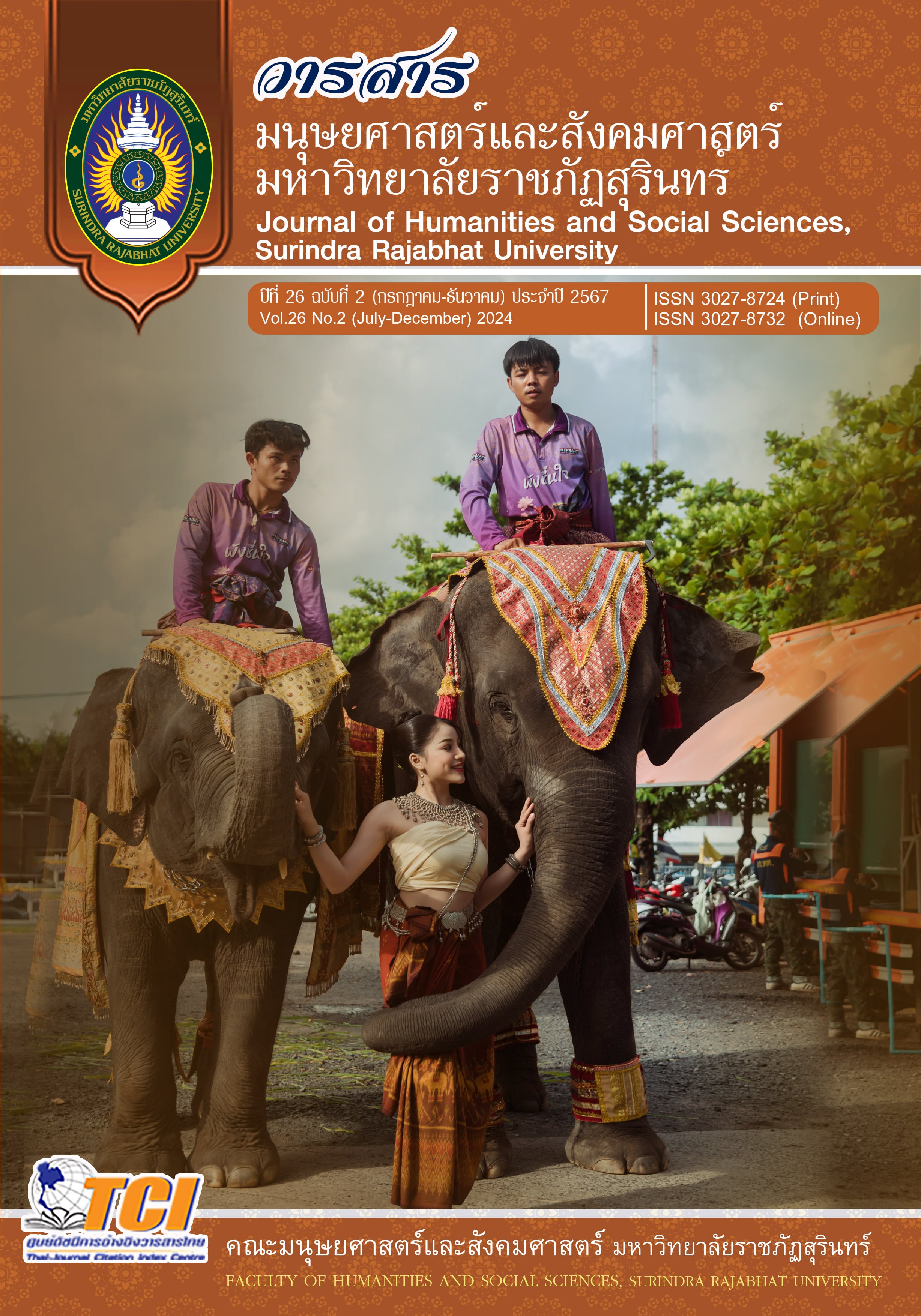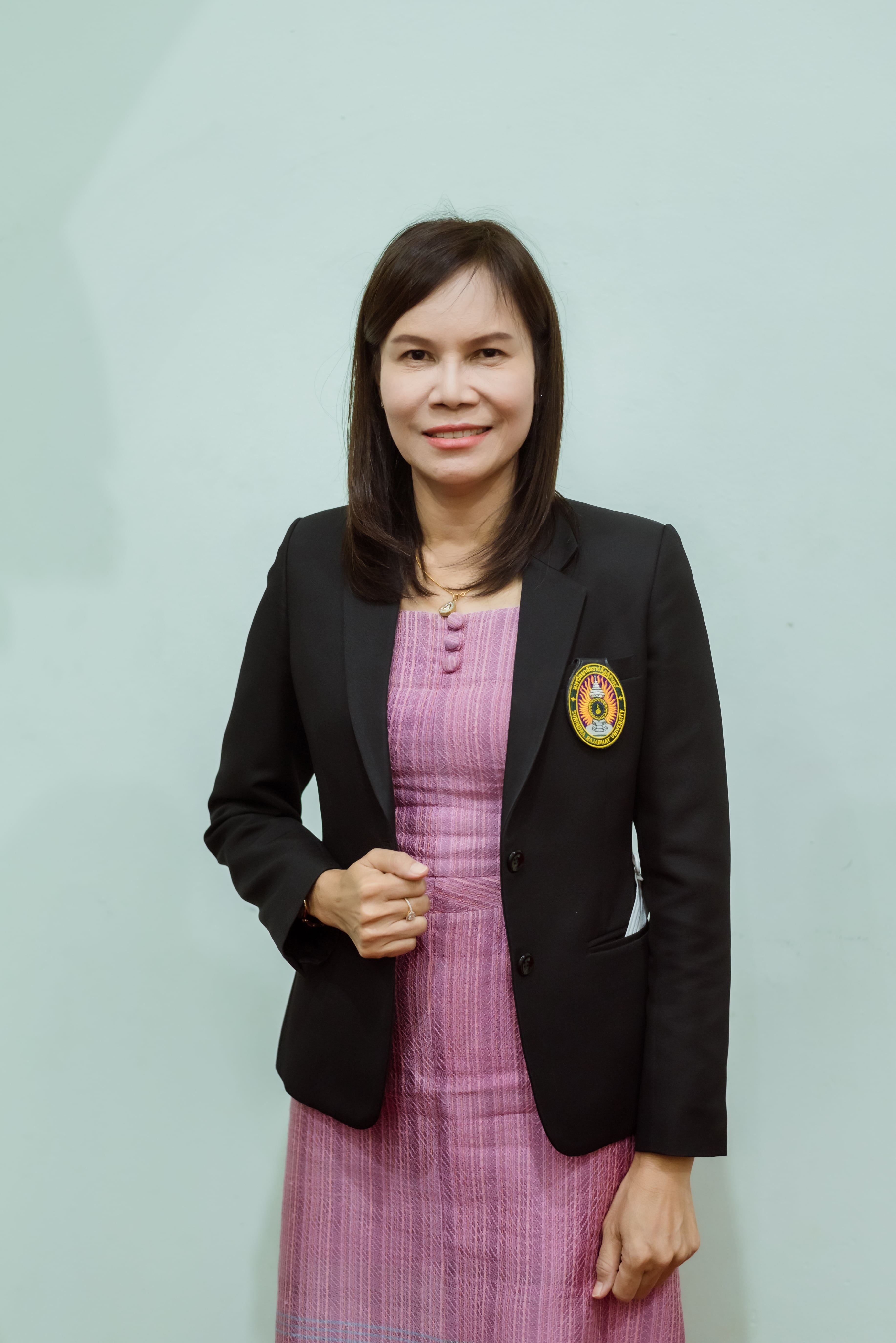Local Curriculum Management for Mango Cultivation for the Public, Pak Chong District Learning Encouragement Center, Nakhon Ratchasima Province
Keywords:
Learning management, Local curriculum courses, Mango cultivation, Pak Chong District Learning Encouragement CenterAbstract
The objectives of this research are 1) to study local curriculum management for mango cultivation for the public, Pak Chong District Learning Encouragement Center, Nakhon Ratchasima Province 2) To study the results of local curriculum management for mango cultivation for the public. 3) To study satisfaction with the local learning curriculum on mango cultivation for the learning public. This research is mixed methods research by use qualitative and quantitative research methods. The sample group consisted of 18 students in the first semester by purposively selected from classroom in the academic year 2023 at NFE Pak Chong District, Nakhon Ratchasima Province. The research tools used were document analysis forms, learning management plan, learning activities, observational form, work piece evaluation form,measurement sheet, academic achievement test (Pretest-Posttest), satisfaction questionnaire. Data from qualitative research were analyzed for content. Quantitative research analyzes data using computer programs, statistics used in the research include percentages, mean, standard deviations. The results of the research found that :
1. Local curriculum management for mango cultivation for the public, the curriculum has been developed jointly between learners, communities, wisdom, teachers and instructors. It is an integrated curriculum that organizes learning through education. Problems and needs of the community, then analyze and prepare the curriculum and content. teaching methods: theoretical and practical, totaling 40 hours. The content of the course is as follows; 1) Channels for making a career in mango growing 2) Skills for making a career in mango growing and 3) Management in making a career in mango growing. There are 4 learning management steps : 1) setting specific objectives, 2) teaching methods, 3) evaluation and 4) summarizing results.
2. The pre-tests and post-tests was found that students had higher learning achievement after studying. The study was statistically significant at the .05 level. Students have practiced Hands-on in the mango field Gain skills in planting grafting and grafting mango branches maintenance There is an exchange of knowledge. Presentation of techniques on how to grow mangoes Selling mangoes through online channels Accounting for income and expenses. As a result, students are more interested in learning.
3. The satisfaction assessment results was found that the highest level of satisfaction was with learning management. The students were most satisfied with the learning process, followed by the content,teachers and instructors,media and learning equipment, measurement and evaluation aspect, respectively.
Downloads
References
กระทรวงศึกษาธิการ. (2566). พระราชบัญญัติการส่งเสริมการเรียนรู้ พ.ศ.2566. กรุงเทพฯ : กรมส่งเสริมการเรียนรู้.
กระทรวงศึกษาธิการ. (2560). พระราชบัญญัติการศึกษาแห่งชาติ พุทธศักราช 2542 ฉบับแก้ไข พ.ศ. 2545. กรุงเทพฯ : สำนักงานเลขาธิการสภาการศึกษา กระทรวงศึกษาธิการ.
กศน.อำเภอปากช่อง. (2565). รายงานสรุปผลการดำเนินงานศูนย์การศึกษานอกระบบและการศึกษาตามอัธยาศัยอำเภอปากช่อง. นครราชสีมา : กศน.อำเภอปากช่อง จังหวัดนครราชสีมา.
จุรี ทัพวงษ์, ปวริศา จรดล และนภาภรณ์ ธัญญา. (2567, มกราคม-มีนาคม). “รูปแบบการจัดการศึกษาสำหรับผู้เรียนหลักสูตรวิชาชีพระยะสั้น เพื่อเสริมสร้างสมรรถนะการเป็นผู้ประกอบการของวิทยาลัยเทคนิคบางแสน.” วารสารพุทธจิตวิทยา. 9(1) : 37-50.
ชรินทร์ มั่งคั่ง. (2561). องค์ความรู้หลักสูตรและการสอนสังคมศึกษา. กรุงเทพฯ : จุฬาลงกรณมหาวิทยาลัย.
ณัฐธิดา ดวงแก้ว. (2565, กรกฎาคม-ธันวาคม). “การพัฒนาหลักสูตรท้องถิ่นโดยใช้แหล่งเรียนรู้ในท้องถิ่นเพื่อส่งเสริมทักษะชีวิตและอาชีพในศตวรรษที่ 21.” วารสารวิจัยและพัฒนา มหาวิทยาลัยราชภัฏบุรีรัมย์. 17(2) : 129-143.
ณัฐรุจา ท่าโทม. (2565). ผลการใช้กิจกรรมบทบาทสมมติเพื่อเสริมสร้างพฤติกรรมทางสังคมของเด็กอนุบาลในห้องเรียนพหุวัฒนธรรม. วิทยานิพนธ์ปริญญาการศึกษามหาบัณฑิต สาขาวิชาการศึกษาปฐมวัย คณะศึกษาศาสตร์ มหาวิทยาลัยบูรพา.
ดารุณี เดชยศดี. (2562). การพัฒนารูปแบบการบริหารแบบมีส่วนร่วมของภูมิปัญญาท้องถิ่นในการจัดการเรียนรู้ เพื่อส่งเสริมทักษะชีวิตและอาชีพของผู้เรียนในสถานศึกษา สังกัดกลุ่มการศึกษาท้องถิ่นภาคตะวันออกเฉียงเหนือ. วิทยานิพนธ์ปริญญาปรัชญาดุษฎีบัณฑิต. มหาวิทยาลัยราชภัฏมหาสารคาม.
ทิศนา แขมมณี. (2560). ศาสตร์การสอน : องค์ความรู้เพื่อการจัดกระบวนการเรียนรู้ที่มีประสิทธิภาพ. พิมพ์ครั้งที่ 21. กรุงเทพฯ : จุฬาลงกรณ์มหาวิทยาลัย.
ปรียานุช มีจาด. (2564, กรกฎาคม-ธันวาคม). “การพัฒนาหลักสูตรฝึกอบรมระยะสั้นเรื่องการเพิ่มมูลค่าการแปรรูปอาหารจากกล้วยน้ำว้า สำหรับกลุ่มสตรีและเยาวชนในองค์การบริหารส่วนตำบลทับผึ้ง อำเภอศรีสำโรง จังหวัดสุโขทัย.” วารสารครุพิบูล. 8(2) : 279-291.
พิศิษฐ ตัณฑวณิช. (2558). “แนวคิดการจำแนกพฤติกรรมการเรียนรู้ตามวัตถุประสงค์การจัดการศึกษาด้านพุทธิพิสัย ตามแนวคิดของบลูม และคณะ ฉบับปรับปรุง.” วารสารมหาวิทยาลัยราชภัฏลำปาง. 3(2) : 13 - 25.












